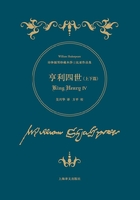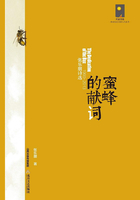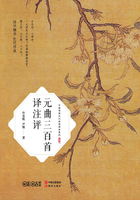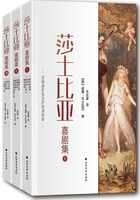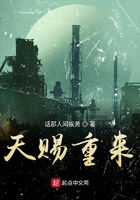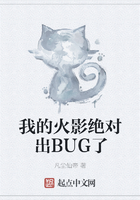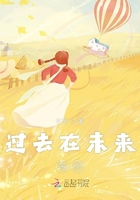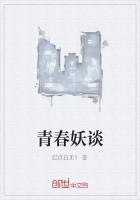The next thing we know of Vonnegut to be in connection with the environmental movement is his speech on the frst Earth Day demonstration in New York,1970. Slaughterhouse-Five was published one year before, protests against the Vietnam War were raging all over the country, and Vonnegut was still radiant in the aura as the author of a famous book and the spokesman for anti-war protests。His invitation to the demonstration was not surprising。Vonnegut did not seem to be optimistic about the environmental movement。When asked whether the environmental movement was a granfalloon or karass, two terms he coined in Cat'sCradle,he answered in favor of the former。“It's a big soppy pillow,”he said,“nobody is going to do anything。”But this was more an expression of his indignation at the bigot insistence of the government on the war in Vietnam than of indifference to the cause of environmental protection。In the speech, he taught people to be able to endure pain, just like the protagonist in Sirens of the Titan who is challenged to put up with shocks sent to the antennae fixed in his brain whenever he starts to think about anything serious and meaningful。The thinking of environmental protection will cause a lot of pain, Vonnegut seemed to be telling his audience, since it is against the wills and interests of the government and big enterprises, but it is pain worth bearing。
After that, we hear Vonnegut talk more openly and directly about issues about environmental pollution, extinction of species, overpopulation, and destructive effects of science and technology on the environment。 Published two years after the frst Earth Day, Breakfast of Champions was heavily loaded with criticism of human destruction of the environment。In a large number of essays and interviews, he talks of conservationism, of Schweitzer, and of Rachel Carson。In the essays he wrote in his late years, such as Fates Worse Than Death and A Man Without a Country, eco-thinking has defnitely become a predominant theme。
The last thing we saw him with animals is a pathetic report from a neighbor。“One day, during a thunderstorm, his neighbor saw Vonnegut taking the little Lhasa apso for a walk。 He followed behind, holding out an umbrella at arm's length to keep the dog dry as she skipped about his feet, while the rain poured down on him instead”(Shields 2011:409)。 An old man in his late seventies and troubled by the mess of an unhappy second marriage, Vonnegut hang on to his little dog, just like many of his characters。
B。 Infuences
The people that had the greatest influence on Kurt Vonnegut in his love for animals and his concepts about human-animal relationship include his sister, his father, and some teachers。 Alice Vonnegut, fve years older, was Kurt's closest companion growing up, his sympathetic partner, and the source of artistic inspiration。Vonnegut later candidly acknowledged that when he wrote, he had in his mind his sister as the reader:“[……]she was the person I had always written for。She was the secret of whatever artistic unity I had ever achieved。She was the secret of my technique”(SS 15)。The death of Alice in 1958 at the age of forty-one“probably impressed me more than anything else”(CKV 205)。Slapstick, or Lonesome No More is claimed to be written in her memory, in which the poignant agony of separation between the dizygotic twin brother and sister is portrayed with irresistible force。
When little, Alice could be sentimental about animals in the extreme。“The sight of a truck on the highway carrying chickens on their way to market sent her into hysterics, and only her parents'assurances that those chickens were on their way to a new farm could calm her down”(Shields 12)。 Because she hated hunting so much, both Kurt and his father gave up the hobby, enormously ashamed of it(T 42)。When he grew up and became a famous writer, Vonnegut was heard criticize Hemingway for his big-game hunting, citing Vance Bourjarly,“The bigger the game, the more corrupted the soul of the hunter”(FWTD 62)。In her married life, Alice clung to this sentiment for animals。She“adored children and animals, and decorated the walls of her home with stencils of flowers and birds。[……]Inside the Adams residence, exotic birds fapped through the rooms abovethe heads of Jim, Jr。,eleven;Steve, nine;and the youngest, Kurt, six, who was nicknamed‘Tiger'because of the way he cried lustily as a baby”(Shields 141-2)。Similarly, in Vonnegut's own house in Barnstable at Cape Cod, barn swallows scuffed in the darkness of the eaves(CKV 7)。The scenes can easily remind us of Jailbird in which a throng of bright yellow birds fy inside of the crown of Chrysler Building。
Vonnegut talked about his sister's peculiarity about animals on many an occasion。 When asked by an interviewer what his sister's dream was, he answered,“She wanted to live like a member of The Swiss Family Robinson,with impossibly friendly animals in impossibly congenial isolation”(PS 97)。What is significant is that Kurt Vonnegut never felt embarrassed about this peculiarity of his sister。Instead, he seemed to take great pride in it。In his own writing and interviews he talked of the choice of one nephew, the oldest son of his sister, with fondness and admiration。Jim Adams, the nephew, became a goat farmer on a mountain top in Jamaica“[t]o live far from the madness of cities, with animals for friends”(SS 15),“for the past eight years。No telephone。No electricity”(PS 97)。The note of admiration is evident。As a matter of fact, we see this yearning for a life free of modern civilization in the leading character of Player Piano。In this novel, Dr。Paul Proteus, a brilliant young manager of the Ilium Works and son of an extremely wealthy and infuential entrepreneur, makes up his mind to give up everything and live a Thoreauvian life of simplicity。However, as it turns out in the novel, it is only a dream to be easily crushed amidst the suffocating, dehumanizing powers of industrialism and technocracy。
The father's influence in the aspect of animal love came not as prominent, but he taught Vonnegut to look at the world with an open mind and to live as a“planetary citizen”。 Kurt Vonnegut, Sr。was a dignified architect whose talent was not given suffcient opportunity to demonstrate, particularly during and after the Great Depression。He had no commissions for twenty years。To his son, he was like a Sleeping Beauty waiting for the prince to bring her back to life, which, unfortunately, never happened after the Depression(FWTD 24)。He became quiet and subdued,“a dreamy artist and a good one”,who“found the real world ugly”and had no interest in it(CKV 227)。But he never gave up his aspiration for beauty。
In Fates Worse Than Death, Vonnegut the writer describes the uniqueness of his father。When in the Depression all other fathers were“speaking gloomily of coal and iron and grain and lumber and cement and so on”,his father“was urging friends and startled stranger alike to pay attention to some object close at hand, whether natural or manmade, and to celebrate it as a masterpiece”。When Vonnegut and his friends brought him a moth to see what sort of moth it was,“[h]e said that he did not know its name, but that we could all agree wholeheartedly on this much:that it was a masterpiece”(FWTD 25)。The son and writer recalled this uniqueness with perfect pride,And he was the frst planetary citizen my new friends had ever seen, and possibly the last one, too。 He was no more a respecter of politics and national boundaries than(that image again)a unicorn。Beauty could be found or created anywhere on this planet, and that was that。(FWTD 25)
How much this infuenced Kurt Vonnegut, Jr。's thinking is hard to tell, but we can see defnitely its infuence in the writer's disregard of national and ethnical boundaries in his fiction and philosophy。 Slaughterhouse-Five is not so much a work that criticizes Nazism as one that attacks the senseless slaughter on both sides of the war, and, in extension, slaughter of lives of any kind。Vonnegut uses exactly the word“planetary”whentalking about the destruction the frebombing brought to Dresden:“Every great city is a world treasure, not a national treasure。So the destruction of any of them is a planetary catastrophe”(FWTD 30)。In Mother Night, more typically, he creates a hero who is so obsessed with his role as a dramatist that he turns politically absent-minded and uncommitted。The double agent identity he is given seems to suit him equally well with the Americans and the Germans, which understandably causes him great trouble。In most cases, though, this planetary perspective works positively in Vonnegut's fiction, as in the detached observation of the Earthlings'follies from an extraterrestrial visitor, and in the bold transgression of established boundaries。
Similar infuence came from teachers。 Mr。Hillis Howie was defnitely one of the most important。His encouragement of first-hand experiences with the natural world and the teachings of respect for other beings in spite of their difference had planted the early seeds in Vonnegut's heart that would by and by grow into the most magnanimous humanitarianism。
Another major source of influence was Dr。 Robert Redfield at the University of Chicago。It was from this professor that Kurt Vonnegut acquired the idea of the“folk society”。According to Dr。Redfield, a renowned professor in the field of cultural anthropology, the prevailing opinion needed reexamination that there was no common ladder that all societies evolved through。For him, all societies would pass through one inevitable stage, which he called the“folk society”。It was an isolated but organic community in which“bonds of kinship crisscrossed every which way”。People in such a community share“such general agreement as to what life was all about and how people should behave in every conceivable situation that very little was debatable”(FWTD 122-3)。The ideal folk society was“small, homogeneous, respectful of sacred rituals, and held together by strong primary personal relations。”According to Dr。Redfeld, folk societies could exist both in primitive societies and big cities,“becausethe members of the folk society have a strong sense of belonging together”(Shields 88-89)。
Vonnegut was fascinated with the idea。Even though he knew Dr。Redfield warned against being sentimental about life in Folk Societies,“I still fnd myself daydreaming of an isolated little gang of like-minded people in a temperate climate, in a clearing in a woodland near a lake[……]”(FWTD 123)。He admitted that it was“my undying fantasy that I would be a contented person if only I could become a member of a Folk Society。That is my Holy Grail”(FWTD 124)。It happened that Vonnegut's son, Mark Vonnegut, actually experimented with the idea and set up such a commune in his college years, living with his“fower children friends”in a farm isolated by a big river in British Columbia,“a farm in the wilderness”。As Mark ended up in a schizophrenic breakdown there, which was later successfully cured, Kurt Vonnegut mockingly referred to this horrible experience as“a case of a son's ****** his father's impractical dream come true”,and added immediately,“It worked OK for a while”(Shields 283,287-89;FWTD 123)。To a great extent, Slapstick can be understood as Vonnegut's attempt on his own at realizing his dream。In the bizarre story, he has the protagonist, the“I”in the narrative and the president of future America, carry out the theory of the“artifcial extended families”,assigning names of fowers and animals as middle names to every citizen so that people can recognize their relatives according to the name。
Another legacy Vonnegut obtained from the University of Chicago was the cultural relativist perspective。 Cultural anthropology taught him that what he had once believed about himself, his family, American society, and all of Judeo-Christian civilization, was contingent upon Western theories about time, knowledge, moral, law, and custom。“Culture is a gadget;it's something we inherit,”he later wrote。“And you can fix it the way you can fix a broken oil burner”(Shields 88)。With such an understanding, he was to develop a much broader vision of humanity and an egalitarian view that sees all living creatures equal and worth of respect, as he said,“I was confirmed as a cultural relativist, as the University of Chicago brought it home to me that my culture was not superior to anyone else's or even more complex”(Shields 88)。
Besides these prominent fgures, there are some other people whom Vonnegut counted as important in the ****** of his character and his thinking。 One is Ida Young, the African American cook and housekeeper of the Vonneguts'。Thanks to the distant, aristorcratic mother, little Vonnegut“spent probably more time with her than I spent with anybody—until I got married, of course”(WFG xxiv)。A pious Methodist, Ida Young told him stories from the Bible and taught him about“kindness, honesty, and proper behavior”(Shields 17)。She also read him stories from a sentimental book, More Heart Throbs, which Vonnegut remarked as“hav[ing]so much to do with what I am”,and from which it was an easy jump“to The Spoon River Anthology, by Edgar Lee Masters, to Main Street, by Sinclair Lewis, to U。S。A。,by John Dos Passos, to my thinking now”(WFG xxv)。Vonnegut thought he owed his“intolerable sentimentality”to this early education by Ida Young(WFG xxv)。
Another source of infuence was Vonnegut's ancestors。 From his great grandfather Clemens, a robust man with political and social distinction, an advocate of progressive public education, Kurt inherited the legacy of free thinking。He was straightforward with his identifcation with this ancestor。
“Clemens Vonnegut was a cultivated eccentric,”says Uncle John[who wrote the family history of the Vonneguts]。 That is what I aspire to be。[……]“While his forebears had been Roman Catholics, he professed to be an atheist or Free Thinker。”So do I profess。“He would more properly be called a skeptic, one who rejects faith in the unknowable,”“‘Skeptic'is also the proper thing with call me。”(PS 31)
This legacy played a significant role in Vonnegut's thinking ofreligion, politics, and art。 Kurt expressed similar identification with his architect grandfather, a refned man dedicated to arts but considered by the Midwestern norm as a freak。He could understand the unhappiness of his grandpa because he suffered similar suffocation when as a youth he wanted to pursue arts but was forced into studying“something useful”,which was synonym to science。Later he would spend his life trying to show to the world that being a writer could also be useful for society。
The family heritage influenced Kurt Vonnegut in another aspect, namely, their ethnic identity as German-Americans。 Although the Vonneguts was a prestigious family in Midwestern America and they tried to preserve their German culture since their immigration to America in the early 19th century, the cultural tie was cut off during the First World War, due to the prevailing anti-German sentiments。Kurt Vonnegut's parents were so intimidated that they resolved to raise their children“without acquainting[them]with the language or the literature or the music or the oral family histories which my ancestors had loved。They volunteered to make me ignorant and rootless as proof of their patriotism”(PS 20)。As Uncle John pointed out in the family history, the two world wars were painful experiences for the German-Americans。“They hated to be obliged to fght their racial cousins, but they did so, and it is signifcant that of the millions of German descendants in the United States during those dreadful wars there was not one case of treason”(PS 20-21)。This ethnic dilemma and the mood of the Diaspora filled in Vonnegut's fiction and might account, at least in part, for his detestation of war and prejudice of any kind。
Here we may come to a conclusion that, directly or indirectly, all the factors, education at home and school, family, friends, books, war, and social movements, all had an infuence on the shaping of Vonnegut's personality and thinking。 Having experienced the hardships of the Depression, the pain of mother's suicide, the horror of war, the humiliationof captivity, and the abhorrence of overnight conflagration of an entire city, he grew up into a sad, skeptical, but kind and sentimental young man, longing for love, recognition, and belonging。As a writer, he was humane and compassionate, capable of seeing the world with an open mind, from a perspective that is larger than life, free from prejudices as much as possible, in terms of race, gender, class, nationality, culture, and, species。
He was to become a man with profound egalitarian and humanitarian sympathies for all beings, particularly those of lower and humble origins, those oppressed, manipulated, victimized。As Gregory D。Sumner, another Vonnegut biographer, has noted, running through his fourteen novels, there is“[t]he identification with the underdog”,“the tenderness for misfits, castoffs, and losers in a country of ambitious strivers”(8)。Vonnegut expresses his missionary commitment to the good of the underdog by quoting Eugene Victor Debs(1855—1926),the socialist leader to whom he dedicated Hocus Pocus,“While there is a lower class I am in it。While there is a criminal element I am of it。Where there is a soul in prison I am not free。”All these qualities laid good foundations for the philosophy of Kurt Vonnegut, a philosophy that tries to enlarge humanism and include every living being into the humane concern。
§§Chapter 3 Meat-eating

